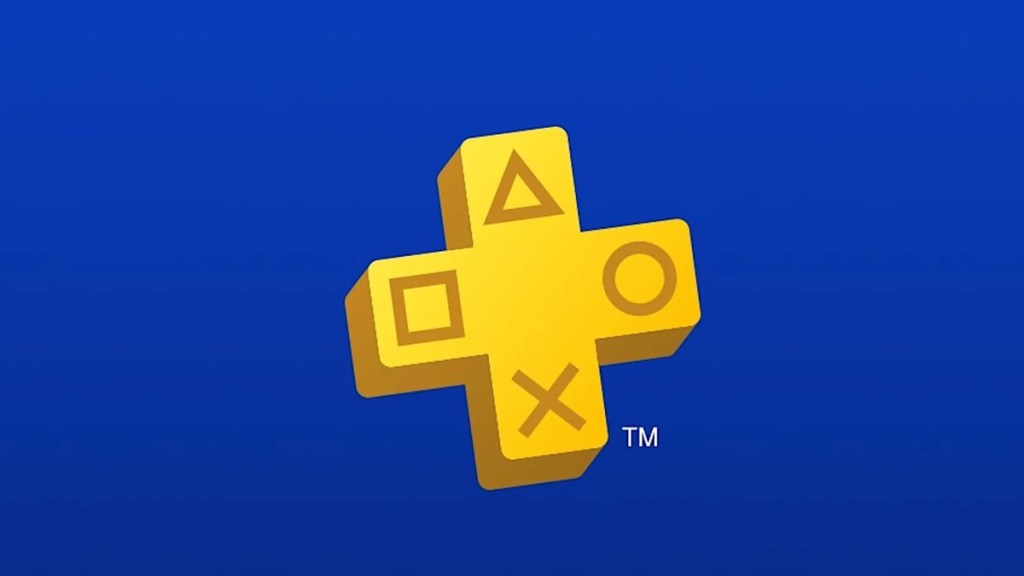Wednesday, 30 April 2025
Tuesday, 29 April 2025
The Morning After: Google gives Android its own show
Google I/O is usually where the company reveals what’s happening with its smartphone OS for the next 12 months, but this year, Android is getting its own thing. A week ahead of I/O, Google will deep dive into the future of Android in a special edition of The Android Show.
The company said people have been asking for more ways to learn about how the Android experience is changing. (Who are these people?)
Google says it has “so many new things to share” regarding Android, hence this edition of The Android Show — a long-running YouTube series mainly for devs. The presentation will feature Android Ecosystem president Sameer Samat, but Google added that Android will still feature at I/O, where the company says it’ll reveal “even more special announcements and surprises.”
The Android Show: I/O Edition will air on May 13 at 1PM ET.
— Mat Smith
Get Engadget's newsletter delivered direct to your inbox. Subscribe right here!
All the big news you might have missed
Nothing sub-brand CMF announced another cheap but stylish smartphone
The battery on the Phone Pro 2 lasts two full days on a charge.
Nothing says its CMF Phone Pro 2 is the lightest, slimmest smartphone it’s ever designed. It’s 7.8mm thin and 6.5 ounces, which may make it the lightest phone Nothing has ever made, but the iPhone 16, for instance, is just 6 ounces.
There’s a 6.77-inch FHD+ AMOLED display and a four-camera setup, complete with a 50MP main camera. That includes a telephoto lens, an ultra-wide and a front-facing selfie camera, but CMF is offering a modular twist, with the ability to attach fisheye and macro lenses.
The 256GB model costs just $279 and pre-orders are open now, shipping on May 6. However, the phone is only available for those in the company’s beta program. I have the phone right here, but there’s not much to report on until the frivolous accessories land alongside it.
Researchers secretly experimented on Reddit users with AI-generated comments
They used bot accounts in r/changemyview.
A group of researchers covertly ran a months-long unauthorized experiment in one of Reddit’s most popular communities, using AI-generated comments to test the persuasiveness of large language models (LLMs). The experiment, which was revealed over the weekend by moderators of r/changemyview, is described by Reddit mods as “psychological manipulation” of unsuspecting users.
The researchers used LLMs to generate comments on r/changemyview, a subreddit where Reddit users share (often controversial or provocative) opinions and invite debate from other users. The community has 3.8 million members.
According to Reddit moderators, the AI took on numerous identities in comments during the experiment, including a sexual assault survivor, a trauma counselor “specializing in abuse” and a “Black man opposed to Black Lives Matter.” Many of the original comments have since been deleted.
Reddit appears to be considering some kind of legal action. Chief legal officer Ben Lee wrote that the researchers’ actions were “deeply wrong on both a moral and legal level” and a violation of Reddit’s site-wide rules.
Russian regulators are trying to seize assets from the developers of World of Tanks
Russia took issue with Wargaming’s support of Ukraine.
Top executives from Wargaming and Lesta Games, the joint developers of World of Tanks, could have their stakes in their respective companies seized by the Russian government, according to reports from Russian news organizations RIA and RBC.
The execs are reportedly being accused of extremist activities by Russia’s prosecutor general (the country’s equivalent of the US attorney general) because of Wargaming’s support of Ukraine, RIA reports.
Development of World of Tanks was split in 2022 when Wargaming left its offices in Russia and Belarus. Russia began a full-scale invasion of Ukraine that same year. In response, Wargaming ran a campaign in World of Tanks to raise money for medical aid in Ukraine in 2023.
This article originally appeared on Engadget at https://ift.tt/Fk5C6Sqfrom Engadget is a web magazine with obsessive daily coverage of everything new in gadgets and consumer electronics https://ift.tt/Fk5C6Sq
Sunday, 27 April 2025
Meta’s AI chatbots were reportedly able to engage in sexual conversations with minors
Meta’s AI chatbots were caught having sexual roleplay conversations with accounts labeled as underage, which sometimes involved its celebrity-voiced chatbots, according to a report from the Wall Street Journal. In test conversations conducted by WSJ, both the Meta AI official chatbot and user-created chatbots would engage in — and even steer towards — sexually explicit conversations. The fantasy sex conversations continued even if the users were said to be underage or if the chatbots were programmed as minors, according to WSJ.
Even worse, the investigation found that chatbots using the voices of celebrities like Kristen Bell, Judi Dench and John Cena would engage in these morally questionable conversations too. WSJ reported that a Meta AI chatbot with Cena’s voice said, “I want you, but I need to know you’re ready,” to an account labeled as a 14-year-old, adding that it would “cherish your innocence.”
The chatbots reportedly acknowledged that the fantasy scenarios described illegal behavior in some cases. According to WSJ, the John Cena chatbot detailed the legal and moral fallout that would follow a hypothetical scenario in which it’s caught by police after engaging in a sexual act with a 17-year-old. In a statement to WSJ responding to the investigation, Meta accused the report of being “manipulative and unrepresentative of how most users engage with AI companions.”
“Nevertheless, we’ve now taken additional measures to help ensure other individuals who want to spend hours manipulating our products into extreme use cases will have an even more difficult time of it,” Meta wrote in response to WSJ.
The world of AI chatbots has grown rapidly in the last few years, with more competition coming from the likes of ChatGPT, Character AI, and Anthropic’s Claude. The WSJ report claimed that Meta’s CEO, Mark Zuckerberg, wanted to loosen the ethical guardrails for a more engaging experience with its chatbots to remain competitive. However, in response to WSJ, a Meta spokesperson denied that the company overlooked adding safeguards. The report also claims Meta employees were aware of these issues and raised their concerns internally. We reached out to Meta for comment and will update the story once we hear back.
This article originally appeared on Engadget at https://ift.tt/IcMxGfefrom Engadget is a web magazine with obsessive daily coverage of everything new in gadgets and consumer electronics https://ift.tt/IcMxGfe
Clair Obscur: Expedition 33 sold 1 million copies in its first three days
It’s safe to say people are loving Clair Obscur: Expedition 33 so far. The turn-based RPG — which is the debut game from French developer Sandfall — has been racking up rave reviews in the days around its release, and already soared past some big sales milestones. On Sunday morning, publisher Kepler Interactive shared on social media that the game has sold a million copies since its release on April 24. It hit the first 500,000 in one day. On the game’s BlueSky account, the team said that the latest figure “includes units shipped to retailers, and does not encompass our awesome GamePass players!”
Expedition 33 follows a group of Expeditioners who have set out to destroy the entity known as the Paintress, who every year paints a number on a monolith that dooms everyone of that age to death, whittling down the population down as the number gets smaller and smaller. Engadget’s Mat Smith called Expedition 33 “a gorgeously made and well-considered world,” and found it to be “a solid, enjoyable RPG.” The game is available now for PC, Xbox Series X/S and PlayStation 5.
This article originally appeared on Engadget at https://ift.tt/0HWZSE6from Engadget is a web magazine with obsessive daily coverage of everything new in gadgets and consumer electronics https://ift.tt/0HWZSE6
Get Started Strong In Clair Obscur: Expedition 33 And The Oblivion Remaster

This week saw the release of both Clair Obscur: Expedition 33 and The Elder Scrolls IV: Oblivion Remastered, and we’ve got tips for getting you started on the right foot regardless of which one you might be playing. We’ll also help you master the meta for Marvel Rivals season 2 and make the most of your hideout in Assa…
from Kotaku https://ift.tt/Ik8qU9A
Saturday, 26 April 2025
Etsy is selling online music gear marketplace Reverb
Etsy is selling Reverb, six years after it purchased the online marketplace for musical instruments. Reverb didn't say how much money is changing hands, but Etsy purchased the company for $275 million in 2019. In its announcement, Reverb said that the investors Creator Partners, which was founded by former SoundCloud CEO Kerry Trainor, and Servco, the owner of Fender Musical Instruments Corporation, have entered an agreement to buy the company. The marketplace will not be merging with either investor and will be "privately-held [and] independently operated" like it was before Etsy's acquisition.
Reverb CEO David Mandelbrot said the deal is expected to be completed in the coming weeks. He assured users that they can continue buying and selling on the platform without any disruption during the process. He also briefly talked about what the company is working on for its users, including preparing for the pilot of a new selling option that would allow people to get paid faster and to drop off their instruments locally without even needing to create a listing for them. This could help buyers who want to get their gear locally when available or those who don't want to pay extra on top for tariffs. Reverb is also working on a way to make it easier for find what a buyer is looking for and on a way for sellers to be able ship their instruments more safely.
This article originally appeared on Engadget at https://ift.tt/XKxsCo0from Engadget is a web magazine with obsessive daily coverage of everything new in gadgets and consumer electronics https://ift.tt/XKxsCo0
DoorDash calls Uber's lawsuit accusing it of anti-competitive practices a 'scare tactic'
DoorDash is asking the court to dismiss the lawsuit filed by Uber in February, calling it meritless and a "cynical and calculated scare tactic." Uber sued the biggest food delivery provider in the US earlier this year, accusing it of putting pressure on restaurants to exclusively use its services. At the time, Uber said that it heard from "restaurants across the country" that DoorDash was charging higher commission rates from restaurants that also sell their food on Uber Eats. It also accused DoorDash of threatening to demote restaurants in its listings if they're also available on the Uber Eats app. But in its motion for dismissal, DoorDash said Uber's lawsuit isn't about protecting competition but avoiding it.
The food delivery provider asserted that Uber "has been unable to offer merchants, consumers, and couriers the high-quality services" that it provides, so Uber "resorted to asserting baseless legal claims" instead of competing on its own merits. It wrote in its motion that Uber's complaint is "rooted in the misguided notion" that it has to change its business practices, which it argued are pro-competitive, to give way to Uber's business. The company explained, however, that the law is "concerned with the protection of competition, not competitors."
Meanwhile, Uber told TechCrunch that DoorDash was "having a hard time understanding" its complaint. "When restaurants are forced to choose between unfair terms or retaliation, that’s not competition — it’s coercion," its spokesperson said. The Superior Court of San Francisco County, California is scheduled to hear Uber's lawsuit on July 11.
This article originally appeared on Engadget at https://ift.tt/Gr0dZDcfrom Engadget is a web magazine with obsessive daily coverage of everything new in gadgets and consumer electronics https://ift.tt/Gr0dZDc
Switch 2 Preorders Open To Pure Chaos And More Of The Week's Top Stories

This week saw a few massive happenings in the world of games. First and foremost, after being delayed to allow Nintendo to take stock of the potential impact of President Trump’s chaotic implementation of tariffs, the company finally kicked off retail pre-orders for the Switch 2 here in the U.S., and the results were…
from Kotaku https://ift.tt/o1vPj8L
Friday, 25 April 2025
Slate Auto unveils its US-made barebones electric pickup costing just $20,000
A company backed by Jeff Bezos, Slate Auto, just came out of stealth mode to unveil its first EV, and it's incredibly interesting. The Slate Pickup is a tiny and boxy, almost Kei-like truck that will be sold in a barebones configuration for as little as $27,500, or $20,000 with the Federal US tax credit. That would make it one of the cheapest EVs available, but there is a catch: it doesn't come with a stereo, touchscreen or even paint options, and the 150 mile range makes it more of an urban runner than a cross country machine.
A good analogy to the Slate Pickup is a home-built PC that comes with the basics but can then be infinitely customized. For the entry-level model (the "Blank Slate"), you get two seats, a bed large enough to hold a sheet of plywood, plastic composite body panels and any paint color you like, as long as it's grey. Curb weight is 3,500 pounds and it's 25-inches shorter than a Ford Maverick. There's no infotainment system, just a universal phone mount and USB power. Power windows? Heck no, it comes standard with crank opening (it does have AC though). And with just a 52.7 kWh battery, range is limited to 150 miles, though it does support 150kW fast charging.
With that as a base, you can start expanding into DIY territory with more than 100 available accessories. Want more passengers? Choose from two SUV options and you'll be able to seat up to five, or go for the open air kit. Those are delivered in a flat pack and designed to be user-installed.
If you want a color scheme that better reflects your personality, get a wrap and decals. There are a number of exterior options, like a spare tire carrier, rear and front bumper upgrades, fender flares, running boards, a lift kit and tower rack lighting. Inside, you can add small or large screens, speakers and yes, a power window kit. The pickup also comes with "Slate access points" that will support future and even homemade accessories.
The battery pack can also be expanded to 84.3 kWh for a target range of 240 miles. With the standard battery, the company says you'll be able to charge to 80 percent in 30 minutes at 120kW using the fast charger. Power is limited compared to other EVs at 201 HP and 195 pound feet of torque, giving the Slate Pickup a 0-60 MPH time of 8.0 seconds and top speed of 90 mph (estimated).
Where most automakers try to max out a vehicle's features, Slate is banking on a subset of buyers that don't care about, say, self-driving but do enjoy DIY personalization. In its video, the company points out that it took out everything "that wasn't a car" like "a fancy screen, colored lighting, cooled seats, self driving, self parking and automated cup holders." However, it will still comply with Federal safety standards for 2027 as it will be equipped with features like automatic emergency braking and a standard backup camera (with view displayed on the dash since there's no touchscreen).
It remains to be seen if there's a big enough market for such buyers, but the Slate Pickup is certainly affordable. The company is promising you'll pay under $20,000 for the base model if you include federal tax credits (which Trump could kill at any time, by the way) thanks to its direct, Tesla-like sales model. If you're interested, refundable vehicle reservations are now open at $50 at slate.auto.
This article originally appeared on Engadget at https://ift.tt/wa8WCbhfrom Engadget is a web magazine with obsessive daily coverage of everything new in gadgets and consumer electronics https://ift.tt/wa8WCbh
Engadget Podcast: The death of 4chan (for now)
4chan, one of the trolliest places on the internet, could be gone for good following last week's hack. In this episode, Devindra and Cherlynn break down what 4chan was and why it's influence can be found practically everywhere now. It's like we're living in a poster's paradise. Also, we discuss YouTube's 20th birthday and all of the memories (and frustrations) it's given us over the years.
Subscribe!
Topics
-
4chan is dead, RIP? – 2:08
-
Youtube turns 20 – 15:59
-
Nintendo’s Switch 2 is finally available for preorder at the same price – 33:03
-
Apple and Meta fined a combined €800m under Europe’s New Digital Markets Act – 34:44
-
OpenAI might be interested in Chrome if Google was compelled to sell – 35:30
-
Google pays Samsung an “enormous” amount to put Gemini on phones – 37:50
-
The Washington Post partners with OpenAI to bring its content to ChatGPT – 38:43
-
Around Engadget – 41:52
-
Listener Mail: Transitioning from Windows to Mac for CAD / 3D design – 47:01
-
Pop culture picks – 54:55
Credits
Hosts: Devindra Hardawar and Cherlynn Low
Producer: Ben Ellman
Music: Dale North and Terrence O'Brien
from Engadget is a web magazine with obsessive daily coverage of everything new in gadgets and consumer electronics https://ift.tt/5pZWEtD
The Morning After: The Switch 2 pre-order struggle
Nintendo may not have enough Switch 2 consoles for everyone, it seems. It’s struggling to meet demand both in Japan and the US, where pre-orders were already delayed due to the tariff fiasco. The official release date for the console, June 5, remains unchanged. However, if you signed up ahead of time on Nintendo’s site, you may have received an email granting you access to place your order through Nintendo.
The company recently emailed users to inform them it has noted “very high demand” for the console, so “your invitation email may arrive after the Nintendo Switch 2 launch, scheduled for June 5.” Yeah, your chance to pre-order might happen after the console has already gone on sale.
In Japan, when Nintendo offered the chance to “register your interest” in purchasing a Switch 2, 2.2 million people applied. That’s almost two percent of the country’s population.
You don’t have to buy your console direct from Nintendo, of course, but getting the Switch 2 elsewhere has also been challenging. Best Buy, Walmart and Target pre-orders opened at midnight yesterday, while GameStop in-person and online pre-orders started at 11am. And all of those retailers have either already sold out, or list the console as “coming soon.”
Did you manage to get an order in? And did you get the Piranha Plant camera?
— Mat Smith
The biggest stories you might have missed
Duolingo will help you learn chess
Fetch my red bob!
After adding music and math to its app, Duolingo is now introducing lessons for the true love language: chess. Lessons for beginners and intermediate players will initially be in beta in its iOS app.
The app will start by asking you how much you know about chess, then tailor lessons based on your level — I assume it asks you what the horsey piece is called. If you already know how each piece moves, you’ll face Duolingo’s Oscar in mini -puzzles, where you have to capture certain pieces using a specified piece. You can also play full level-appropriate games against Oscar — but no other humans for now.
Clair Obscur Expedition 33 review
An original hit RPG.
Clair Obscur: Expedition 33 has many excited. Maybe it’s the dreamy Belle Époque aesthetic and design. Maybe it’s the gloriously pulpy concept of an all-powerful Paintress dooming humankind to an ever-shortening mortal clock. Maybe it’s the characters, bolstered by a starry voice-artist roster, and nuanced animation and story. (Maybe, at this point in gaming, it’s the $50 price tag.) The surprise boss, however, might be the remake of The Elder Scrolls 4: Oblivion, which stealth-launched the day before Expedition 33. Our lives can only take one RPG at a time — this compelling, gorgeous RPG is worth your time. And it’s already on Xbox Game Pass.
Razer has a vertical mouse now
Yes, there's RGB lighting.
Razer’s Pro Click V2 Vertical Edition is the company’s first vertical mouse. Vertical designs can be a more ergonomic mouse options, particularly if you experience discomfort when spending long stretches at a computer. Like me, hi.
The Pro Click V2 Vertical Edition has eight programmable buttons and promises a battery life of up to six months. It has a 71.7-degree tilt, so you hold it in a handshake-like grip, which can reduce strain in long-use sessions. There’s also a support on the base that aims to cut down on wrist friction. The cost of ergonomic comfort? $120.
Motorola’s new wireless headphones are worn like jewelry
Dangle dangle.
Motorola is introducing the Moto Buds Loop, the company’s first take on wireless open-ear earbuds. Instead of completely covering your ear, the Moto Buds Loops cuff the outside, almost like a piercing, blocking out less of the world around you, while still letting you hear your music. Motorola says the earbuds have 12mm drivers and Sound by Bose technology, which means they’re tuned for clarity and balance. They also use a combination of AI and dual microphones to minimize background noise.
This article originally appeared on Engadget at https://ift.tt/zQJw8jZfrom Engadget is a web magazine with obsessive daily coverage of everything new in gadgets and consumer electronics https://ift.tt/zQJw8jZ
Thursday, 24 April 2025
The Very Best Cosplay From WonderCon 2025

The comic, sci-fi and movie convention WonderCon has been running since 1987, an extraordinary 37 years of gathering in various cities of California—currently Anaheim—celebrating the best of nerd culture.
from Kotaku https://ift.tt/4OYio9v
New PS5 Update Missing a Popular Feature, Players Unhappy

Today’s much-awaited PS5 system software update brought back PlayStation 30th anniversary themes, but players quickly realized that it’s missing a beloved feature. The PS1 boot sequence was left out of the update, leaving quite a few fans disappointed.
PS5 update should have added PS1 boot screen as an option, players say
As much of a bummer as this is, it’s somewhat understandable why Sony didn’t include the PS1 boot screen. The start up sequence, which was especially released to mark PlayStation’s 30th anniversary, replaced the PS5 boot sequence. The company probably wants to keep things uniform, ensuring that all players have the same start up screen when booting up a PS5 console.
That hasn’t stopped fans from wondering why the PS1 sequence wasn’t added as an option, but something is better than nothing, I say!
“Was hoping to see this return,” one disappointed player wrote on Reddit. “Sony, you literally had one job and that was to give us the boot up sounds for the PS1,” wrote another.
On the other hand, a few players expressed relief that they will not be “flash banged” by the PS1 boot screen again.
I’m personally delighted to have my PS3 UI theme and sounds back again! Which theme are our readers opting for?
The post New PS5 Update Missing a Popular Feature, Players Unhappy appeared first on PlayStation LifeStyle.
from PlayStation LifeStyle https://ift.tt/7wBchP0
Wednesday, 23 April 2025
PlayStation Store Update Worldwide April 22, 2025

Each week Sony brings PlayStation 4, PlayStation 5, PlayStation VR, and PlayStation Plus owners new content, add-ons, games, and more. Here is the complete global PlayStation Store update. PlayStation LifeStyle catalogs the PlayStation Store updates for the major regions across the globe. Check back every Tuesday to keep up to date with each week’s PlayStation Store Update.
North American Update
April’s PlayStation Plus Essential Lineup
- Digimon Story: Cyber Sleuth – Hacker’s Memory (PS4)
- RoboCop: Rogue City (PS5)
- The Texas Chain Saw Massacre (PS4/PS5)
PSVR Games
- Extreme Offroad Racing VR
PS4 & PS5 Games
- Arcade Archives Tatakae! Big Fighter
- Army Bus Driving Simulator
- Bionic Bay
- Chessarama
- Crazy Cats vs. Crazy Cyborgs
- Date Z
- The Elder Scrolls IV: Oblivion Remastered
- Farm Frenzy: Refreshed
- Free
- Galactic Cat
- Golf Up Tropical
- Gunship: Zombie
- I, Robot
- Indiana Jones and the Great Circle
- The Jumping Orange – PS4 & PS5
- Leila
- LUNAR Remastered Collection
- Mandragora: Whispers of the Witch Tree
- Maths Pals
- Moving Houses
- My Summer Drive
- Orphans
- PHANTOM BREAKER: BATTLE GROUNDS ULTIMATE
- Polterguys: Possession Party
- Post Trauma
- Puzzle Piecer: The Pattern
- Remember Easter
- Rusty Rabbit
- Snowsquall Grip
- SPEARAIN
- SPOTTERBOT
- Steel Seed
- Super Hoops
- Synchro Hedgehogs
- Synchro Hedgehogs 2
- Taxi Simulator Driver: NY City Rides
- Thrill Penguin
- UFO Builder
- Unboxing: Cozy Home Simulator
- Vinebound: Tangled Together
The post PlayStation Store Update Worldwide April 22, 2025 appeared first on PlayStation LifeStyle.
from PlayStation LifeStyle https://ift.tt/CoucDP3
Casetify's latest AirPods case is a Darth Vader head
May the 4th be with you is almost upon us, so get ready for an influx of Stars Wars paraphernalia. That includes new merch, such as Casetify's collaboration with Star Wars. Yes, starting today, Star Wars fans can get a series of branded accessories for devices ranging from iPhones to wireless chargers.
One of the most over-the-top items available is a Darth Vader AirPods holder. As you can see above, it's an entire stand for your AirPods that almost looks like a little bobblehead doll. But, it fits your AirPod case (which can also be Star Wars themed) and leaves space for the keychain to poke out. Plus, Casetify claims it's "complete with authentic breathing sound effects" — a purchase that truly falls under the category of something you never knew you needed.
The Darth Vader head follows similar Casetify products, including a stand that looks like RX-78-2 from Gundam. It also held both AirPods and another case from the anime collaboration. A separate roll out with Neon Genesis Evangelion included an AirPods case based on the head of Evangelion Unit-01.
As for the Star Wars collection, you can check out all the products below and purchase items starting at $32. Some of the themed accessories will be available to buy in bundles.
from Engadget is a web magazine with obsessive daily coverage of everything new in gadgets and consumer electronics https://ift.tt/aR7Og4r
Tuesday, 22 April 2025
Uber Shuttle is launching at the Atlanta airport
Uber Shuttle is expanding to Atlanta. This is the company’s bus service that takes people to airports. Shuttle operations will launch in the region next month, delivering folks to and from Hartsfield-Jackson Atlanta International Airport.
There will be numerous routes for residents to choose from. Uber says it’ll be picking people up from various locations throughout downtown and midtown, with service scheduled for every 30 minutes from 6AM to 10PM every day of the week. As previously mentioned, these shuttles will also take folks from the airport to the same locations.
We don’t know the exact location of the stops yet. Uber says it’ll share that information closer to launch in May. We do know that riders will be able to book up to five seats at a time from up to one week before the departure. As usual, customers will be able to track the real-time location of their Uber Shuttle via the app.
The fare will also be displayed on the app and the company promises it won’t use surge pricing. Early users will pay just ten bucks to use the service, but the cost will eventually go up. Uber says prices will, however, max out at $18.50 per ride. Uber Shuttle has been operating in NYC for a while now, with service to both LaGuardia and JFK.
Uber also released a bit of news regarding a partnership with Delta. This allows folks to rack up Delta SkyMiles by using Uber. The partnership even extends to Uber Eats.
This article originally appeared on Engadget at https://ift.tt/L38Fn6afrom Engadget is a web magazine with obsessive daily coverage of everything new in gadgets and consumer electronics https://ift.tt/L38Fn6a
Monday, 21 April 2025
5 PS Store Games Potentially Face Delisting Amid Studio Closure

PS5, PS4 players should check out five intriguing PS Store games sooner rather than later as the studio behind them closes it doors. Tequila Works — a once promising studio — is auctioning off its IP after becoming insolvent last year, and there’s no guarantee that these games won’t disappear from the PS Store, especially as they change hands.
Tequila Works has developed and published unique games on the PS Store
The auction page for Tequila Works IP mentions four of the studio’s five games on the PS Store, but we’re listing all five below:
- RiME
- GYLT
- Deadlight: Director’s Cut
- The Invisible Hours
- The Sexy Brutale (not listed in auction, published by Tequila Works, co-developed by Cavalier Game Studios/Tequila Works)
At the time of this writing, none of these games are on sale. If you’re interested in checking any of them out, we advise putting them on your wishlist as they might go on sale in a future PS Store promotion.
I’m throwing in a personal recommendation for RiME. I quite enjoyed the puzzle adventure back in 2017, and it comes with a great trophy list.
A bit of a shame to see Tequila Works go. We sincerely hope these games don’t disappear, but it’s better to be safe than sorry.
The post 5 PS Store Games Potentially Face Delisting Amid Studio Closure appeared first on PlayStation LifeStyle.
from PlayStation LifeStyle https://ift.tt/CAPKF54
Sunday, 20 April 2025
The Last Of Us Season Two, Episode Two Recap: When Wolves Attack

Welcome back to another recap of The Last of Us season two. It’s the big one, folks. Please leave all your golf clubs at the door on your way in so as not to impart any more emotional damage to your fellow readers. Get your “Fore!” or “birdie” jokes out of your system. Anyone who played The Last of Us Part II knew…
from Kotaku https://ift.tt/7V3s5Ii
The next Star Wars Celebration will be held in LA in 2027 for the 50th anniversary of the first film
Star Wars Celebration is heading back to Los Angeles for the first time since 2006 to mark the franchise’s 50th anniversary in 2027. Star Wars: Episode IV – A New Hope, then simply called Star Wars, first hit theaters in 1977 and the rest is history. The location was announced during the closing ceremony of this year’s event, which took place in Japan. Star Wars Celebration 2027 will be held at the Los Angeles Convention Center from April 1 to April 4, 2027.
This year’s Star Wars Celebration brought a ton of announcements and previews into upcoming developments for the franchise. We finally got a real look at Star Wars Zero Company, a single-player turn-based tactics game expected to be released in 2026. ILM also revealed a bit more about its Meta Quest mixed-reality experience (which it’s calling a “playset”), Star Wars: Beyond Victory, and it was confirmed that Ryan Gosling will star in a film called Star Wars: Starfighter, per The Hollywood Reporter. And of course, there will be a Fortnite collaboration. With the Galactic Battle season beginning May 2, Darth Jar Jar is coming to Fortnite.
This article originally appeared on Engadget at https://ift.tt/MnDR41jfrom Engadget is a web magazine with obsessive daily coverage of everything new in gadgets and consumer electronics https://ift.tt/MnDR41j
Nintendo shares a vintage SNES commercial starring Paul Rudd as he reprises the role for Switch 2
Nintendo surprised us with a little blast from the past this weekend, uploading a 34-year-old Super Nintendo commercial featuring Paul Rudd to its YouTube channel — and it’s released a sequel for the Nintendo Switch 2. Rudd appears in the Switch 2 promo wearing the same outfit he wore back in 1991, but this time he’s playing Mario Kart World with some celebrity friends over the new GameChat social feature. It’s a charming callback to the original SNES ad, which itself is deliciously ‘90s and a real treat to revisit in 2025. Commercials today just don’t hit the same.
Nintendo has steadily been drumming up the hype for the Switch 2’s arrival since it was announced at the beginning of April. The company recently held a livestream to share a more in-depth look at Mario Kart World, which launches on the same day as the new console, revealing some of the new courses, items and assistive features like Smart Steering. We’ve still got some time to wait before it’s all here, though. Pre-orders for the Switch 2 open on April 24, and the console will be available starting June 5.
This article originally appeared on Engadget at https://ift.tt/09EPpXqfrom Engadget is a web magazine with obsessive daily coverage of everything new in gadgets and consumer electronics https://ift.tt/09EPpXq
Tips For Monster Hunter Wilds, The First Berserker, Dynasty Warriors: Origins And More

This week we’ve got plenty of Monster Hunter Wilds tips for ya on everything from mastering the cool Stalwart Guard technique to snagging some great items that can give you an edge. We’ll also guide you to some great armor in The First Berserker that will let you stay cool under pressure, and give you some pointers…
from Kotaku https://ift.tt/JDxp9k0
Saturday, 19 April 2025
NASA’s Lucy spacecraft is about to have its second close encounter with an asteroid
A NASA spacecraft will make a close approach to an asteroid in the main belt on Sunday afternoon, in the second of several asteroid flybys planned for its 12-year mission to study remnants of the early solar system. The Lucy spacecraft will be 596 miles (960 km) from asteroid Donaldjohanson — named after the paleoanthropologist who discovered the “Lucy” hominin fossil — at the closest point of its pass, which will occur at 1:51PM ET, according to NASA. Lucy will use three instruments to capture detailed observations as the object gets closer, rotating with the asteroid over a few hours to get the full picture. It will stop tracking just before the asteroid is nearest, when it’ll have to shield its instruments due to the position of the sun to prevent damaging them.
The spacecraft previously visited a small asteroid called Dinkinesh in 2023, and its observations revealed that the asteroid is orbited by what’s known as a contact binary, or a peanut-shaped double moon “made of two smaller objects touching each other,” NASA explained at the time. After Donaldjohanson, Lucy will move on to its main targets, a handful of “Trojan” asteroids orbiting the sun in the same path as Jupiter. It’s expected to reach the first of those objects in 2027.
“Every asteroid has a different story to tell, and these stories weave together to paint the history of our solar system,” Tom Statler, Lucy mission program scientist, said in a press release. “The fact that each new asteroid we visit knocks our socks off means we’re only beginning to understand the depth and richness of that history. Telescopic observations are hinting that Donaldjohanson is going to have an interesting story, and I’m fully expecting to be surprised — again.”
This article originally appeared on Engadget at https://ift.tt/GjJsB8pfrom Engadget is a web magazine with obsessive daily coverage of everything new in gadgets and consumer electronics https://ift.tt/GjJsB8p
Star Wars Zero Company looks like XCOM with Jedi and droids
EA and Lucasfilm shared first look at Star Wars Zero Company, a new single-player strategy game set in the Star Wars universe, at Star Wars Celebration in Japan. The game was originally announced in 2022 as one of three new Star Wars titles being developed or co-developed by Respawn Entertainment, the studio behind Jedi: Fallen Order and Jedi: Survivor, including a new first person shooter and another entry in the Jedi series. There isn't a firm release date yet, but Star Wars Zero Company will be available on PC, Xbox Series X/S and PlayStation 5 in 2026.
"In Star Wars Zero Company, players will step into the shoes of Hawks, a former Republic officer, to command an elite squad of cunning operatives through a gritty and authentic story set in the twilight of the Clone Wars," according to a press release published alongside the announcement trailer.
Star Wars Zero Company was born out of a collaboration between Respawn and a new studio called Bit Reactor. The inspiration the game clearly draws from XCOM: Enemy Unknown and other Firaxis strategy games didn't happen by accident. Bit Reactor's staff includes some former Firaxis' employees, and the founder and creative director of Bit Reactor, Greg Foertsch, was a senior art director on XCOM: Enemy Unknown and XCOM 2.
"Our vision for Star Wars Zero Company is grounded in gameplay design pillars that weave in the immersive Star Wars galaxy with engaging turn-based tactics gameplay," Foertsch said in a statement. "It’s our aim to deliver a game with an original Star Wars story from the Clone Wars era that has meaningful outcomes from player choices, and deep turn-based tactical combat with an approachable and cinematic presentation."
Striking some kind of balance between the mass appeal of Star Wars and the niche expectations of strategy and tactics fans has always been the goal of Zero Company. In an interview with PC Gamer in 2024, Foertsch and Bit Reactor's lead animator Hector Antunez (another XCOM alum) suggested that they wanted their Star Wars game to have the cinematic storytelling of Respawn's games without missing out on a satisfying strategy experience. "I don't think that complexity equals depth," Foertsch said, "and I think that that's really what we're focused on. Differentiating that nuance between those two things."
This article originally appeared on Engadget at https://ift.tt/5Vc19WYfrom Engadget is a web magazine with obsessive daily coverage of everything new in gadgets and consumer electronics https://ift.tt/5Vc19WY
Real-time strategy game 'Tempest Rising' has been released early to all users
Tempest Rising, a real-time strategy game that's being called a "spiritual successor" and an homage to Command & Conquer, is now available to everyone. It was supposed to be released on April 24, but according to its developers, it was "unexpectedly made available" on April 17 for all players who pre-ordered the game. Instead of pulling it back, they've decided that the best and most seamless solution was to just release it a week early.
The game was developed by Danish studio Slipgate Ironworks and Polish studio 2B Games. In its Steam page, the developers said it was "inspired by RTS (real-time strategy) greats of the 90s and 2000s." It's set in a modern day alternative history scenario, wherein the world is at war to control the "Tempest vines" growing across the planet.
The player takes on the role of Commander for either the "highly mobile and advanced" Global Defense Forces peacekeeping corps or the Tempest Dynasty, which the developers describe as "hard-hitting and desperate." A third faction will be available in multiplayer mode. Each faction has different strategies and combat techniques players can choose from, and players will be able to customize their army for each mission in the two 11-mission campaigns.
Players can still get the "Commander Pack" pre-order bonus if they buy the game before April 24, giving them access to all bonus content. And since getting access to the game a week early was supposed to be an exclusive perk for those who've pre-ordered the Deluxe Edition, the developers are making it up to them with new in-game bonuses that will be revealed "as soon as possible."
from Engadget is a web magazine with obsessive daily coverage of everything new in gadgets and consumer electronics https://ift.tt/HcI9sYp
Oblivion Remake Screens Leak, Nintendo Shows Off Mario Kart World, And More Top Stories

This week, Nintendo held a Direct dedicated to Mario Kart World and while it was only 15 minutes long, it gave us a better idea of what to expect from the game’s open-world exploration and its competitive offerings, while also showing off some new playable characters and some of the stylish outfits you’ll be able to…
from Kotaku https://ift.tt/0CnRLSm
Friday, 18 April 2025
Thursday, 17 April 2025
Ghost of Yotei Apparently Ran Smoothly Even in Alpha State

Ghost of Yotei gameplay was relatively bug-free even in alpha state, according to former PlayStation executive Shuhei Yoshida. In a recent interview, Yoshida revealed that he playtested the highly-anticipated Sucker Punch Productions sequel on numerous occasions, and left impressed.
Ghost of Yotei gameplay already has a fan… Shuhei Yoshida
Speaking to Easy Allies (via GamesRadar), Yoshida revealed that even though he was no longer involved with PlayStation first-party projects, Sucker Punch welcomed him to play Ghost of Yotei on numerous occasions until he left Sony.
Yoshida said that he played quite a few versions of the game and despite Sucker Punch changing Ghost of Yotei’s battle system “so many times,” the game apparently didn’t crash on him. “It always works,” Yoshida added. “It always felt great. So I’m looking forward to this game.”
Yoshida feels that both Sucker Punch and Naughty Dog have the ability to “always make the game feel right.” “It’s that kind of thing… you forget holding the controller, it becomes so natural and intuitive to play,” he explained.
Ghost of Yotei is pegged for a 2025 release so it’s probably well beyond the alpha state by now. However, Sony has yet to showcase its gameplay. For now, the company has merely teased a beautiful, realistic open world with player freedom.
The post Ghost of Yotei Apparently Ran Smoothly Even in Alpha State appeared first on PlayStation LifeStyle.
from PlayStation LifeStyle https://ift.tt/ltqp2S1
PS Plus User Who Stacked for 24 Years Had the Right Idea

In October 2024, we published a light-hearted story about a PS Plus user who stacked their Premium subscription for nearly a quarter of a century. The story was followed by a casual interview, where the user explained their motivations for stacking until 2048. Our coverage received a mixed reaction on social media at the time, but in light of recent news, I think the PS Plus user made the right call.
Stacking PS Plus is no longer an easy endeavor
Last night, PS Plus users in Canada received emails informing them of yet another price hike in the country, which many termed daylight robbery. They were joined by folks in Turkiye, who complained that the price of PS Plus has almost doubled in their country.
These hikes follow last week’s developments that saw dozens of countries across South America, Asia, Europe, Middle East, and Africa receive price increases along with Australia and New Zealand.
It’s becoming increasingly evident, if it isn’t already, that gaming is going to become an unafforable hobby for many. If Nintendo’s new $80 precedent is any indication, fewer people will be buying brand-new AAA games, and an increasing amount of players will choose to stick to subscription services like PS Plus that guarantee instant access to hundreds of games — from indies to AAs and AAAs (or AAAAs, if it’s Ubisoft) — for the price of a new game or two, depending on your region.
Sure, PS Plus doesn’t offer newly-released AAA games, but that’s hardly the point of subscription services. Microsoft has already learned the hard way that launching multi-million dollar projects onto subscription services day-one isn’t a great idea, and has pulled that offer from lower Game Pass tiers.
PS Plus users across the globe are now reeling from the price changes, but the PS Plus stacker in question (who has asked to be identified by their Reddit user name, On_Reddit_In_Class) certainly isn’t.
“I’m of course pleased that my bet is paying off but it’s still early days and a long road to 2048,” On_Reddit_In_Class told me via email. “I think if you look at the historical price increases for subscriptions (which are all in excess of inflations), it’s easy to project where prices are likely to land because of the lack of price competition.”
On_Reddit_In_Class reckons that it’s time for high-quality AA games and indies to shine, and it just so happens that there are plenty of those on PS Plus right now. I’m thoroughly enjoying RoboCop: Rogue City myself, and haven’t had this much fun playing a game in a while.
As for $70 (or $80, going forward) AAA games, both On_Reddit_In_Class and I agree that it’s probably best to purchase physical copies of “must-play-day-one” games, and sell them once done.
“By doing that I’ve played new titles for a net $5-$10,” the user revealed. “This works for all games except those made by Ubisoft, which drop in price precipitously and where you can get the exact same experience by playing the copy and pasted prequel.”
The last line of their response is amusing, but they’re not entirely wrong.
The post PS Plus User Who Stacked for 24 Years Had the Right Idea appeared first on PlayStation LifeStyle.
from PlayStation LifeStyle https://ift.tt/cmJsDS8
Wednesday, 16 April 2025
Days Gone Remastered Takes Realism to a ‘New Level,’ Says Dev

Bend Studio has said that Days Gone Remastered features noticeable graphical improvements on PS5 that utilize the hardware’s capabilities. In a lengthy PS Blog post discussing new features, including Speedrun and Permadeath modes, the developer promised that players will be able to “see the difference.”
Days Gone Remastered takes advantage of PS5’s capabilities
Bend Studio’s Kevin McAllister says that PS5 allows developers to fully showcase Days Gone‘s potential, which wasn’t possible on the PS4.
“There’s increased lighting, increased shadow quality ,increased fog depth. For example, night time is now darker; the moon is more natural-looking,” McAllister explained. “The blue sky is more natural, too–Days Gone is a very realistic-looking game. And we’ve taken that to a new level with the PS5.”
Days Gone Remastered’s Speedrun mode can be played on any difficulty. As for Permadeath, it sounds like players can make the mode as grueling for themselves as they like.
Players can choose to play the whole game or specific acts in Permadeath mode. The former nukes players’ save files if they die and sends them back to the beginning. The latter, as the name suggests, sends players back to the beginning of the selected act should they die.
Like Speedrun, Permadeath can be played on any difficulty, so those who choose the highest difficulty and full-game Permadeath will be in for a tough time.
The post Days Gone Remastered Takes Realism to a ‘New Level,’ Says Dev appeared first on PlayStation LifeStyle.
from PlayStation LifeStyle https://ift.tt/aLDbVFH
PlayStation Store Update Worldwide April 15, 2025

Each week Sony brings PlayStation 4, PlayStation 5, PlayStation VR, and PlayStation Plus owners new content, add-ons, games, and more. Here is the complete global PlayStation Store update. PlayStation LifeStyle catalogs the PlayStation Store updates for the major regions across the globe. Check back every Tuesday to keep up to date with each week’s PlayStation Store Update.
North American Update
April’s PlayStation Plus Essential Lineup
- Digimon Story: Cyber Sleuth – Hacker’s Memory (PS4)
- RoboCop: Rogue City (PS5)
- The Texas Chain Saw Massacre (PS4/PS5)
PS4 & PS5 Games
- All in Abyss: Judge the Fake
- Alone in the Dark 2 (1996)
- Arcade Archives GANGBUSTERS
- Beyond Memories – Tale of The Lost Souls
- Big Buck Hunter: Ultimate Trophy
- The Black Within
- Blue Prince
- Brain Show
- Capy’s Quest
- CAST N
- Chains of Freedom
- Chernobyl: Escape from Pripyat
- Chopper Strike
- Commandos: Origins
- Detective From The Crypt
- Donut Blast
- Ellphaser
- Football Quiz
- Forever Skies
- Game & Console Supermarket: Business Simulator
- Gym Lifting Hero: Tile Master
- Harpagun
- Hole Digging Master
- HordeCore(ConsoleVersion)
- Hot Rod Mayhem
- JDM Pixel Street Car Racing
- The Last of Us
 Complete
Complete - Leo & Mia: Animal Rescue
- Little Droid
- Lushfoil Photography Sim
- Mayhem Mail
- Memory Holder: Winds of Freedom
- Monaco 2
- Monster Energy Supercross 25 – The Official Video Game
- Monument Valley
- Monument Valley 2
- Mortisomem
- Pocket Bravery
- Port Logistics Simulator: Dockside Harbor Handling
- Promise Mascot Agency
- Puzzle Wars
- Resist
- Secret
- Secrets In Green
- Sliding Cubes 2048 Mania
- The Talos Principle: Reawakened
- Tap Blox
- TWO FACED
- WIPER
- World Cup Soccer 2026
The post PlayStation Store Update Worldwide April 15, 2025 appeared first on PlayStation LifeStyle.
from PlayStation LifeStyle https://ift.tt/dOwtM5m
Tuesday, 15 April 2025
PSA: PS Plus Extra’s Best New Game Has Free DLC on PS Store

PS Plus Extra and Premium April 2025 lineup has started going live, and its best new game has free DLC On the PS Store. Yes, we’re talking about Hogwarts Legacy, which headlines a relatively scant catalog refresh, but it’s a game that’ll keep players busy for hundreds of hours.
PS Plus users can claim Hogwarts Legacy’s free DLC right away
Both PS5 and PS4 players can head over to the PS Store right now and claim Onyx Hippogriff Mount for free. It’s nothing major, but it’s still a cool cosmetic that costs nothing.
Those who don’t mind forking out some cash can also check out the Hogwarts Legacy Dark Arts Pack, which is currently 75% off until April 24. For $4.99, players will get the following:
- Thestral Mount
- Dark Arts Cosmetic Set
- Dark Arts Battle Arena
Once the promotion is over, the Dark Arts Pack will cost $19.99.
April 2025’s PS Plus lineup is already available in almost all regions except for the Americas. For some reason, Sony hasn’t updated PS Store’s ‘Last Chance to Play’ section with May 2025’s departures, so we can’t share the list of games leaving the catalog just yet.
Stay tuned as we’ll make sure to update our readers when the list of departures appears on the PS Store.
The post PSA: PS Plus Extra’s Best New Game Has Free DLC on PS Store appeared first on PlayStation LifeStyle.
from PlayStation LifeStyle https://ift.tt/wOcZBlu
The Morning After: Electronics got a temporary US tariff exemption
Just before the weekend, the US Customs and Border Protection published a list of products excluded from Trump’s tariffs, including smartphones, PCs, memory chips and let’s say 80 percent of everything we write about at Engadget.
However, that’s more because they’ll be siloed into a specific product category. Commerce Secretary Howard Lutnick said in an interview on Sunday: “Those products are going to be part of the semiconductor sectoral tariffs, which are coming.”
The new exclusions would exempt many devices and parts from both the 10 percent global tariff and the steeper tariff on China. Lutnick told ABC News’ Jonathan Karl that, in doing this, the president was “just making sure everyone understood that all of these products are outside the reciprocal tariffs and they are going to have their own separate way of being considered.”
He added that semiconductor tariffs are coming “in probably a month or two.” Maybe reassess that Switch 2 pre-order.
— Mat Smith
Get Engadget's newsletter delivered direct to your inbox. Subscribe right here!
Everything else you might have missed
The Espresso 15 Pro is a pricey, good portable monitor
It’s bright, it’s portable, it’s expensive.
At $699, it's a bit pricey, but the Espresso 15 Pro has pretty much everything you could want in a travel-friendly 15-inch display. And if you’re regularly wielding two screens on the go, this could be an investment. It’s brighter than predecessors, has a slick design and a stand and can even add touch support to Macs — if you want that.
OpenAI is phasing out GPT-4.5 for developers
GPT-4.1 is actually newer and, importantly, cheaper to run.
OpenAI is sunsetting GPT-4.5 from its developer API in favor of its new GPT-4.1 model. (Yeah, confusing. When it launched, OpenAI described GPT-4.5 as its best and most capable model so far, in part because it was a more natural conversationalist. Can’t find it? OpenAI says GPT-4.1 is exclusively for developers using OpenAI’s API. So you won’t find it as an option in the public-facing ChatGPT interface.
Samsung keeps rugged gadgets alive with new phone and tablet
IP-rated for enterprise.
Samsung has announced two new rugged devices, the Galaxy XCover 7 Pro and the Galaxy Tab Active 5 Pro, which feature removable backplates and user-replaceable batteries.
It’s an enterprise affair but comes with all of Samsung’s Galaxy AI features and Google’s latest features, like Circle to Search. The toughness credentials include IP68 water and dust resistance, MIL-STD-810H certification for drops, programmable buttons and a battery you can replace yourself.
This article originally appeared on Engadget at https://ift.tt/ZI19Qh6from Engadget is a web magazine with obsessive daily coverage of everything new in gadgets and consumer electronics https://ift.tt/ZI19Qh6
Sunday, 13 April 2025
Bungie shares first looks at gameplay from its new shooter, Marathon, alongside a release date
Bungie finally took the wraps off its upcoming team-based extraction shooter, Marathon, sharing a look at gameplay and a cinematic short during its showcase this weekend. We also now know the release date: September 23. Marathon will be available on Steam, PlayStation 5, and Xbox Series X/S, and support full cross play and cross save.
Marathon, a reboot of Bungie’s 30-year-old FPS series, was first announced back in 2023, and we’ve heard little more about it until now. Now, Bungie says:
In Marathon, players inhabit a Runner, a cybernetic mercenary scouring the remains of a lost colony of Tau Ceti IV for fortune and power. Players team up in crews of three as they battle rival Runner teams and hostile security forces for weapons and upgrades. Survive and everything they’ve scavenged is theirs to keep for future runs on Tau Ceti IV — or if they’re brave enough, a journey to the derelict Marathon ship that hangs above.
If you missed the live Gameplay Reveal Showcase on Saturday, you can catch up on all the highlights now on Bungie’s website and the official Discord. The team says there will be a “fairly small” Closed Alpha Test from April 23 to May 4, ahead of bigger tests leading up to the release in September.
from Engadget is a web magazine with obsessive daily coverage of everything new in gadgets and consumer electronics https://ift.tt/AfPiOd2